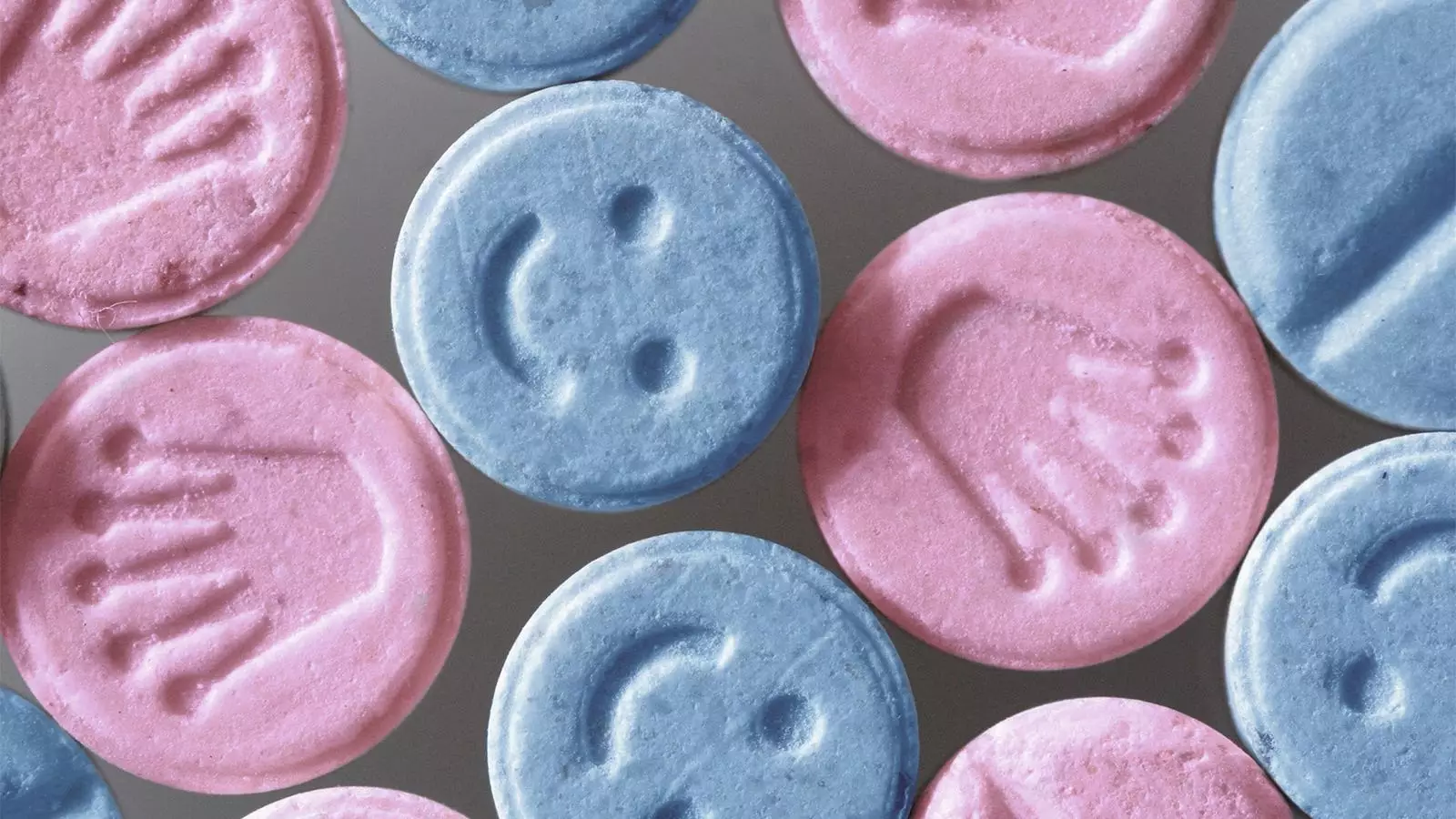After years of research and testing, a phase III randomized trial, known as MAPP2, has found that MDMA-assisted psychotherapy is a safe and effective treatment for individuals suffering from post-traumatic stress disorder (PTSD). The study, led by Jennifer M. Mitchell, PhD, from the University of California San Francisco, showed significant improvement in symptoms among patients who underwent MDMA-assisted therapy compared to those who received a placebo with psychotherapy.
Addressing Symptoms and Improving Functional Impairment
The Clinician-Administered PTSD Scale for DSM-5 (CAPS-5) total severity score was used to evaluate the effectiveness of MDMA-assisted psychotherapy. The study found that patients who underwent this treatment experienced a remarkable improvement in their symptoms compared to those who received placebo with therapy. The change in CAPS-5 total severity score was -23.7 for patients in the MDMA-assisted therapy group, while the change was only -14.8 for those in the placebo group (p<0.001).
Another positive finding was the improvement in functional impairment measured by the Sheehan Disability Scale. Patients who underwent MDMA-assisted therapy had a significant reduction in functional impairment compared to those in the placebo group. The mean change in Sheehan Disability Scale was -3.3 for the MDMA-assisted therapy group, whereas it was -2.1 for the placebo group (p=0.03).
One crucial aspect that sets the MAPP2 trial apart from previous research is its emphasis on including a diverse patient population. Previous trials often excluded individuals from marginalized groups due to lack of resources to support their specific needs, such as transportation or child care. As a result, these trials primarily included more affluent participants, leading to a less diverse sample.
In contrast, the MAPP2 trial aimed to be more inclusive and representative of the general population with PTSD. The researchers received the necessary resources to include patients from all backgrounds, resulting in a more diverse and robust study. This inclusivity is vital because it allows for a better understanding of the potential benefits and limitations of MDMA-assisted therapy across different populations.
Unlike the currently available FDA-approved compounds, which mainly focus on managing the symptoms of depression associated with PTSD, MDMA-assisted therapy directly targets PTSD itself. According to Mitchell, the lead researcher, this innovative treatment addresses the root cause of PTSD rather than merely alleviating the symptoms.
The findings from the MAPP2 trial provide substantial evidence to support submitting a new drug application for MDMA-assisted therapy. In 2017, the FDA granted Breakthrough Therapy Designation to MDMA-assisted therapy for the treatment of PTSD when used alongside psychotherapy. However, further research is still needed to gain a deeper understanding of the long-term effects and efficacy of this treatment.
Exploring the Potential of Psychedelic Therapy
While MDMA-assisted therapy has shown great promise in treating PTSD, researchers believe that the potential of MDMA and other psychedelics extends beyond this particular disorder. Mitchell expressed optimism that these compounds could have a positive impact on various mental health conditions, such as depression and other anxiety disorders.
As the field of psychedelic therapy continues to evolve, researchers are eager to explore the therapeutic efficacy of different psychedelics across a range of mental health disorders. By evaluating the effects of these compounds in each specific disorder, scientists hope to uncover the true potential of psychedelics as a groundbreaking treatment option.
The MAPP2 trial enrolled 104 adults, consisting of 26.9% who had moderate PTSD and 73.1% who had severe PTSD. These participants were randomly assigned to either MDMA-assisted therapy or a placebo. Trained personnel conducted therapy sessions according to the MAPS MDMA-assisted treatment manual and trial protocol.
Significantly, this trial made a conscious effort to include participants from diverse backgrounds. Approximately 34% of the participants identified as non-white, and 26.9% identified as Hispanic or Latino. Moreover, 71.2% of the participants were assigned female at birth, with a slightly higher proportion in the placebo group compared to the MDMA-assisted group.
The trial reported few treatment-emergent adverse events (TEAEs). Out of the total participants, seven experienced severe TEAEs, with five in the MDMA-assisted therapy group and two in the placebo group. Fortunately, there were no deaths or serious TEAEs reported, indicating the safety and feasibility of this approach.
While the findings of the MAPP2 trial are undoubtedly groundbreaking, there is a need for further investigation into the long-term effects of MDMA-assisted therapy. Understanding the durability of these effects is essential for establishing the long-term efficacy and safety of this treatment.
The successful outcome of this trial reinforces the urgent need to explore the therapeutic potential of MDMA and other psychedelics. By expanding research efforts, we can unlock the power of these substances to revolutionize the field of mental health treatment and provide hope to those suffering from various psychiatric disorders.
The phase III trial known as MAPP2 has provided compelling evidence that MDMA-assisted therapy is a safe and effective treatment for PTSD symptoms. This study sets itself apart by including a diverse patient population, which ensures a more representative understanding of the benefits and limitations of this groundbreaking therapy. As we continue to explore the vast potential of psychedelics, we move one step closer to revolutionizing the mental health care landscape.


Leave a Reply